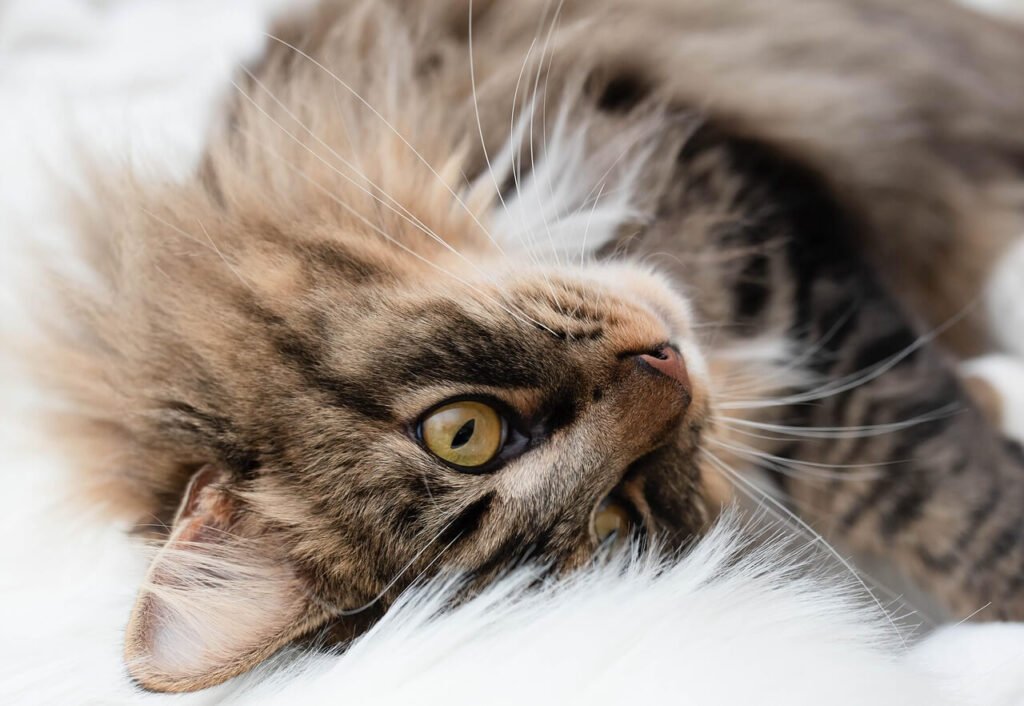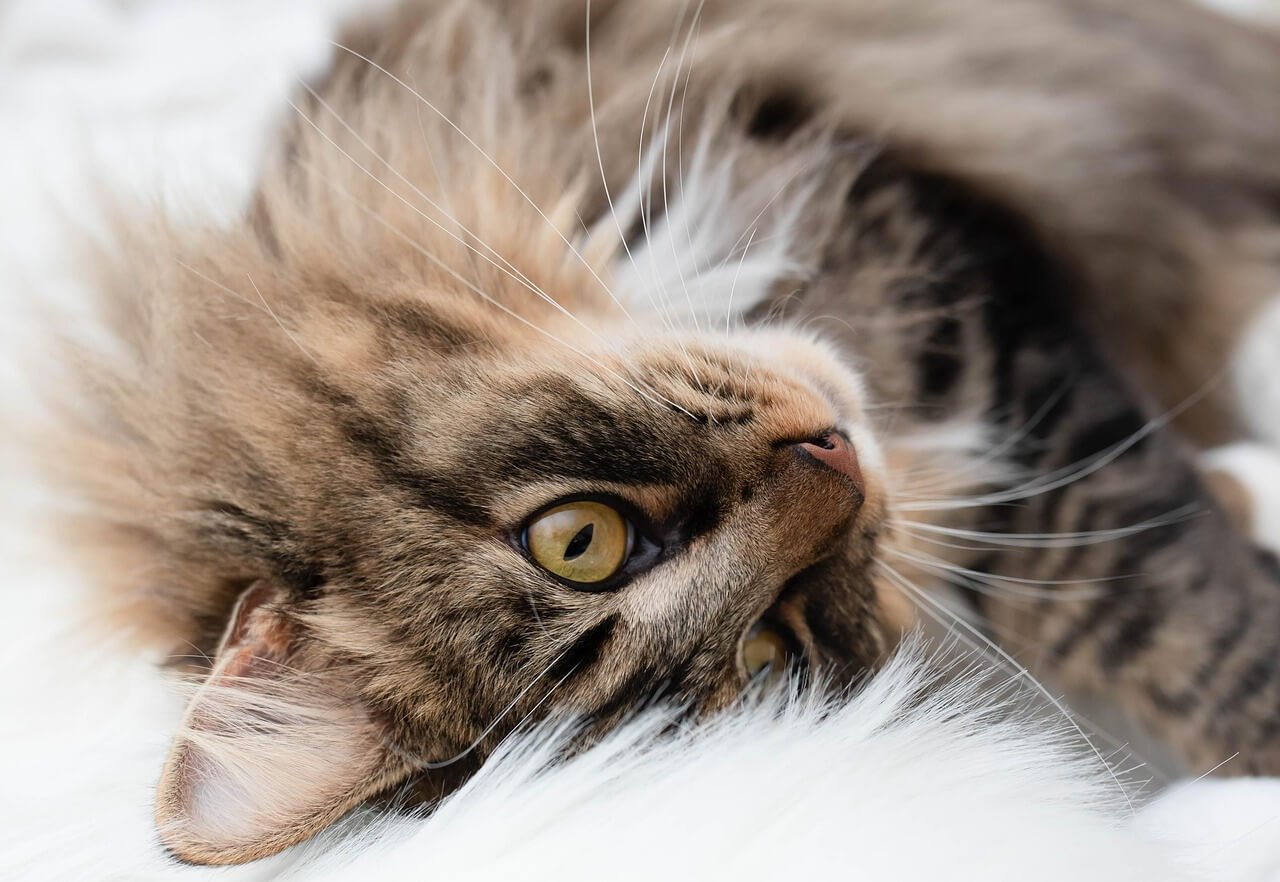Understanding Heart Disease in Cats: A Guide for Pet Owners
Heart disease in cats is a serious condition that often goes unnoticed until it reaches an advanced stage. While our feline friends are known for their independent and resilient nature, they are not immune to health issues, and heart disease is one of the most concerning. It can affect cats of all ages, breeds, and lifestyles, making it essential for pet owners to understand its causes, symptoms, and treatment options. Early detection and proper management can significantly improve the quality of life for affected cats. In this blog post, we’ll explore everything you need to know about heart disease in cats, from its types and risk factors to prevention and care.
Types of Heart Disease in Cats
Heart disease in cats can manifest in various forms, each with unique characteristics. Understanding these types is crucial for identifying potential risks and seeking timely veterinary care. Below are the most common types of heart disease found in cats:
Hypertrophic Cardiomyopathy (HCM):
This is the most prevalent form of heart disease in cats. HCM causes the walls of the heart to thicken, reducing the heart’s ability to pump blood effectively.Dilated Cardiomyopathy (DCM):
Although less common today due to improved dietary standards, DCM results in the heart muscle becoming weak and stretched, leading to poor circulation.Restrictive Cardiomyopathy (RCM):
In this type, the heart walls become stiff, preventing the heart from filling properly with blood.Congenital Heart Defects:
These are structural abnormalities present at birth and can include conditions like valve malformations or holes in the heart.Arrhythmogenic Right Ventricular Cardiomyopathy (ARVC):
This rare condition affects the right side of the heart and can cause irregular heartbeats.
Each type of heart disease requires specific diagnostic methods and treatments, underscoring the importance of consulting a veterinarian if you suspect your cat may be at risk.
Symptoms of Heart Disease in Cats
Detecting heart disease in cats can be challenging because they are masters at hiding discomfort. However, certain symptoms can indicate an underlying issue. If you notice any of the following signs, it’s important to seek veterinary advice promptly:
Lethargy and Weakness:
Cats with heart disease often become less active and may tire easily during play or normal activities.Difficulty Breathing:
Rapid or labored breathing is a red flag and could indicate fluid buildup in the lungs, a common complication of heart disease.Coughing or Wheezing:
While coughing is less common in cats than in dogs, it can still occur and should not be ignored.Loss of Appetite:
A sudden decrease in appetite or refusal to eat can signal discomfort or illness.Fainting or Collapsing:
Episodes of fainting or collapsing are severe symptoms that require immediate attention.
Recognizing these symptoms early can make a significant difference in managing heart disease and improving your cat’s prognosis.
Check this guide 👉Understanding Cat Heart Murmurs: Best 7 Health Tips!
Check this guide 👉Understanding Your Cats Heart Rate: Best 7 Expert Tips!

Common Symptoms of Heart Disease | Preventive Measures |
|---|---|
Lethargy and weakness | Regular veterinary check-ups |
Difficulty breathing | Balanced diet rich in taurine |
Coughing or wheezing | Minimize stress in the home |
Loss of appetite | Maintain a healthy weight |
Fainting or collapsing | Monitor for genetic predispositions |
Risk Factors for Heart Disease in Cats
Certain factors can increase a cat’s likelihood of developing heart disease. Being aware of these risks can help you take proactive steps to protect your feline companion. Here are some key considerations:
Age:
Older cats are more prone to heart disease, particularly hypertrophic cardiomyopathy.Breed Predisposition:
Some breeds, such as Maine Coons and Ragdolls, have a genetic predisposition to heart conditions.Obesity:
Excess weight puts additional strain on the heart, increasing the risk of cardiovascular issues.Poor Diet:
Diets deficient in essential nutrients like taurine can contribute to heart problems.Underlying Health Conditions:
Conditions such as hyperthyroidism or high blood pressure can exacerbate heart disease.
Understanding these risk factors allows pet owners to tailor their care routines to minimize potential threats to their cat’s heart health.
Treatment Options for Heart Disease in Cats
While heart disease in cats cannot always be cured, there are several treatment options available to manage the condition and improve your cat’s quality of life. The chosen approach depends on the type and severity of the disease. Below are some common strategies:
Medication:
Veterinarians may prescribe medications to regulate heart function, reduce fluid buildup, or control blood pressure.Dietary Changes:
A nutritionally balanced diet, often supplemented with taurine, can support heart health.Regular Monitoring:
Frequent veterinary visits and diagnostic tests help track the progression of the disease.Stress Reduction:
Creating a calm and predictable environment minimizes stress, which can worsen heart conditions.Surgery (Rare Cases):
In extreme cases, surgical intervention may be necessary to correct structural abnormalities.
With proper care and treatment, many cats with heart disease can live comfortably for years.
Diagnosing Heart Disease in Cats
Diagnosing heart disease in cats requires a combination of clinical evaluation and advanced diagnostic tools. Since cats often hide their symptoms, veterinarians rely on a variety of tests to confirm the presence of heart disease. Here are some common diagnostic methods used:
Physical Examination:
Veterinarians listen for abnormal heart sounds, such as murmurs or irregular rhythms, during a routine check-up.X-rays (Radiographs):
Chest X-rays help identify changes in the size and shape of the heart, as well as signs of fluid buildup in the lungs.Echocardiogram (Ultrasound of the Heart):
This non-invasive test provides detailed images of the heart’s structure and function, allowing vets to assess its pumping ability.Electrocardiogram (ECG):
An ECG measures the electrical activity of the heart and can detect irregular heartbeats or arrhythmias.Blood Tests:
Blood work helps rule out other conditions and may reveal markers of stress on the heart or other organs.
Accurate diagnosis is the first step toward effective treatment, ensuring your cat receives the care they need to manage their condition.
Lifestyle Adjustments for Cats with Heart Disease
Caring for a cat with heart disease involves more than just medication—it requires thoughtful lifestyle adjustments to support their overall well-being. These changes can make a significant difference in their quality of life. Consider the following tips:
Create a Stress-Free Environment:
Minimize loud noises, sudden changes, or other stressors that could exacerbate your cat’s condition.Provide Gentle Exercise:
Encourage low-impact activities like short play sessions to keep your cat active without overexerting their heart.Monitor Weight Regularly:
Maintain a healthy weight through portion control and a balanced diet to reduce strain on the heart.Offer a Comfortable Resting Space:
Ensure your cat has a quiet, cozy area where they can relax and feel safe.Stick to a Routine:
Cats thrive on predictability, so maintaining a consistent daily schedule can help reduce anxiety.
By incorporating these adjustments, you can create a supportive environment that promotes your cat’s health and happiness.
Nutritional Support for Cats with Heart Disease
Diet plays a crucial role in managing heart disease in cats. Providing the right nutrients can help support cardiac function and overall health. Here are some dietary considerations to keep in mind:
Taurine-Rich Foods:
Taurine is essential for heart health, and deficiencies can worsen heart conditions. Ensure your cat’s diet includes adequate levels of this amino acid.Low-Sodium Options:
Reducing sodium intake can help manage blood pressure and reduce strain on the heart.High-Quality Proteins:
Lean proteins support muscle health and provide energy without adding unnecessary fat.Hydration:
Encourage water intake to prevent dehydration, which can strain the cardiovascular system.Veterinary-Approved Diets:
Specialized diets formulated for cats with heart disease can provide balanced nutrition tailored to their needs.
A well-planned diet not only supports your cat’s heart but also enhances their overall vitality, making it an essential part of their care plan.
FAQ
Can heart disease in cats be prevented?
While not all cases can be prevented, maintaining a healthy lifestyle, providing a balanced diet, and scheduling regular vet check-ups can reduce the risk.
Are certain cat breeds more susceptible to heart disease?
Yes, breeds like Maine Coons, Ragdolls, and Persians have a higher genetic predisposition to heart conditions.
What role does taurine play in heart health?
Taurine is an essential amino acid that supports proper heart function. A deficiency can lead to dilated cardiomyopathy.
How is heart disease diagnosed in cats?
Diagnosis typically involves physical exams, X-rays, echocardiograms, and blood tests to assess heart function and structure.
Can cats with heart disease live long lives?
With early detection and appropriate treatment, many cats can enjoy a good quality of life despite their condition.
Taking Action for Your Cat’s Heart Health
Heart disease in cats is a complex and potentially life-threatening condition, but awareness and proactive care can make all the difference. By understanding the types, symptoms, and risk factors, and by working closely with your veterinarian, you can ensure your feline friend receives the best possible care. Remember, early detection and consistent management are key to helping your cat live a happy, healthy life. Keep an eye out for any unusual changes in behavior or health, and don’t hesitate to seek professional advice when needed. Your cat relies on you to be their advocate—and together, you can conquer the challenges of heart disease.
Do Cats Have Taste Buds? Best 7 Expert Tips! – Discover how cats experience flavors and why their taste is so unique.
Do Dogs Have Taste Buds? Best 7 Expert Tips! – Discover how dogs experience taste, their preferences, and what it means for their diet and health.
Can Cats Taste Sweet? Best 7 Expert Tips! – Discover why cats can’t taste sweetness, how it affects their diet, and tips to keep them healthy and happy.
Can Dogs Taste Sweet? Best 7 Expert Tips! – Discover how dogs perceive sweetness, which foods are safe, and tips to manage their sweet cravings responsibly.





